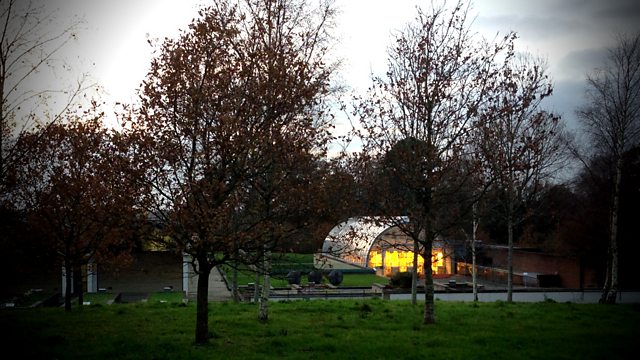The Millennium Seed Bank
Eric Robson hosts GQT from the Millennium Seed Bank at Wakehurst Place. On this week's panel are Bunny Guinness, Anne Swithinbank and Christine Walkden.
Eric Robson hosts GQT from The Millennium Seed Bank at Wakehurst Place. On this week's panel are Bunny Guinness, Anne Swithinbank and Christine Walkden.
We mark the eightieth birthday of the iconic post-war garden designer, John Brookes, who coined the term 'room outside'. Christine Walkden explores the depths of the underground Millennium Seed Bank and traces the journey of the seed from collection to preservation.
Produced by Victoria Shepherd
A Somethin' Else production for 大象传媒 Radio 4
This week's questions:
Q. Is it possible to save an apple tree that has blown over in the wind?
A. Yes, it is very possible to salvage a fallen tree. Use some stakes to keep it upright throughout the winter and then remove them next summer. It may have lost some of its fine roots, so make sure you water it properly next summer. You could prune the head to reduce the wind resistance or support some of the heavier branches. Add mulch to encourage the feeding roots to grow back.
Q. Is a hotbed a good way of growing early vegetables and how would one go about it?
A. One way of doing it is to stack manure or spent hops about 2ft (61cm) deep, cover it with 6 inches (15cm) of soil and sprinkle a handful of sulphate ammonia over the top. You can add a wooden and glass frame over the top to allow you to capture all of the heat from below.
Q. Could the panel suggest some long flowering plants in blues, reds and whites to help create a First World War commemorative display?
A. The single strained Begonias would look beautiful and you could try the white flowering forms with dark red leaves. They don't need deadheading and can cope well in lousy weather.
Perhaps try the red Maltese Cross Lychnis or the brick red Pelargoniums. Marguerite Argyranthemum would provide an array of white daisies. You could try one of the blue Salvias.
Tender perennials are often better value for money as they have a very long flowering season. Salivia Indigo Spires flowers from May right through until early December. Salvia Bethellii has a pinky-red flower and provides colour for a long period. The tender perennials can be lifted at the end of the display and planted somewhere else.
Q. How should a Mandevilla be cared for over the winter?
A. Mandevillas are fabulous climbing plants, with windmill-like flowers spanning 1-3inches (2.5-7.5cm) across. Bring the pot into a cool, frost-free room. Keep it on the dry side because they don't need much water. Don't worry if it loses some leaves and its tips because you can trim it back in spring.
Q. How can you propagate a Cornus Controversa Variegata or the Wedding Cake Tree?
A. They are beautiful specimens with tiers of leaves. You could take them as bare root cuttings, but they would probably do very well as new growth in spring. Put them into a mix of peat and grit, and cover with polythene. They will probably take a long time to form the stunning structure, so it might actually be worth just buying a mature plant.
You could try air layering. Damage a small piece of stem about 6 inches (15cm) from the tip of a good shoot. Bind some damp moss mixed with compost around it with polythene. Leave it for a year or so and keep misting the bag.
Q. Could the panel suggest some native wild flowers to add yearlong colour in a cemetery?
A. The Cuckoo Flower or Cardamine Pratensis always reminds you that spring has arrived. Perhaps try digging slits into some of the turf or use a grazing animal before sowing; otherwise the seeds will have to compete with the grass. Meadow Sweet is ideal for a damp spot and will provide end of season colour. Try Yellow Rattle to reduce the fertility rate of the grass. Once the growth rate of the grass has slowed, add plants such as Ajuga Reptans and Penny Royal. Fritillaria Meleagris takes three years but the time will fly by and is well worth it for the beautiful bell-shaped flowers.
Last on
More episodes
Previous
Broadcasts
- Fri 13 Dec 2013 15:00大象传媒 Radio 4
- Sun 15 Dec 2013 14:00大象传媒 Radio 4
Six of GQT鈥檚 naughtiest gardening innuendos
When Gardeners' Question Time got mucky.
Podcast
-
![]()
Gardeners' Question Time
Horticultural programme featuring a group of gardening experts


